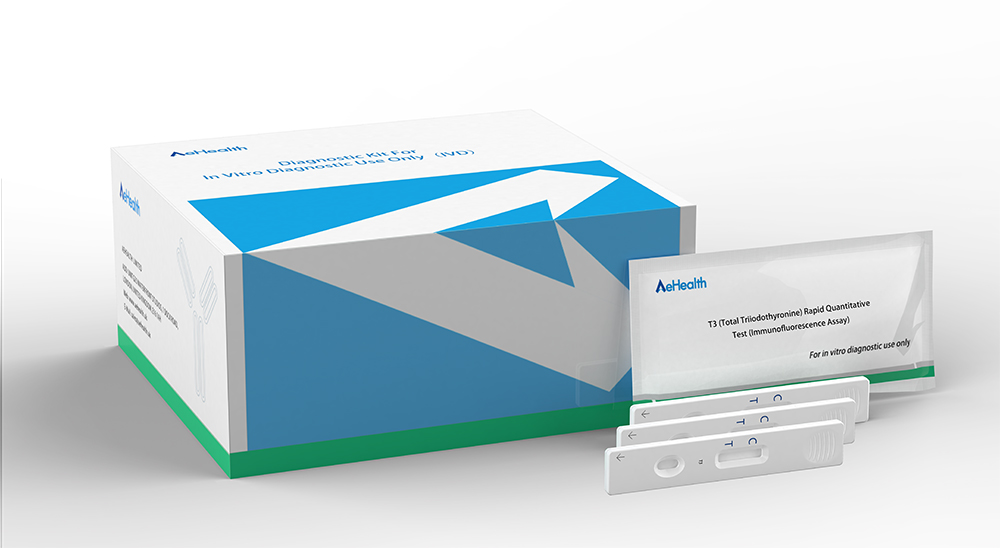
Performance Characteristics
Detection Limit: 10.0nmol/L ;
Linear Range: 10.0-320.0nmol/L;
Linear correlation coefficient R ≥ 0.990;
Precision: within batch C.V. is ≤ 15%; between batches C.V. is ≤ 20%;
Accuracy: the relative deviation of the measurement results shall not exceed ± 15% when the accuracy calibrator prepared by TT4 national standard or standardized accuracy calibrator are tested.
Cross-Reactivity:The following substances do not interfere with the T4 test results at the indicated concentrations: TT3 at 500ng/mL,rT3 at 50ng/mL.
1. Store the detector buffer at 2~30℃. The buffer is stable up to 18 months.
2. Store Aehealth Ferritin Rapid Quantitative test cassette at 2~30℃, shelf life is up to 18 months.
3. Test cassette should be used within 1 hour after opening the pack.
The determination of serum or plasma levels of Thyroxine (T4) is recognized as an important measurement in the assessment of thyroid function. Thyroxine (T4) is one of two major hormones produced by the thyroid gland (the other is called triiodothyronine, or T3), T4 and T3 are regulated by a sensitive feedback system involving the hypothalamus and the pituitary gland. Approximately 99.97% of the T4 circulating in the blood is bound to plasma proteins: TBG (60-75%), TTR/TBPA (15-30%) and Albumin (~10%). Only 0.03% of circulating T4 is free (unbound) and biologically active. Total T4 is a useful marker for the diagnosis of hypothyroidism and hyperthyroidism.

